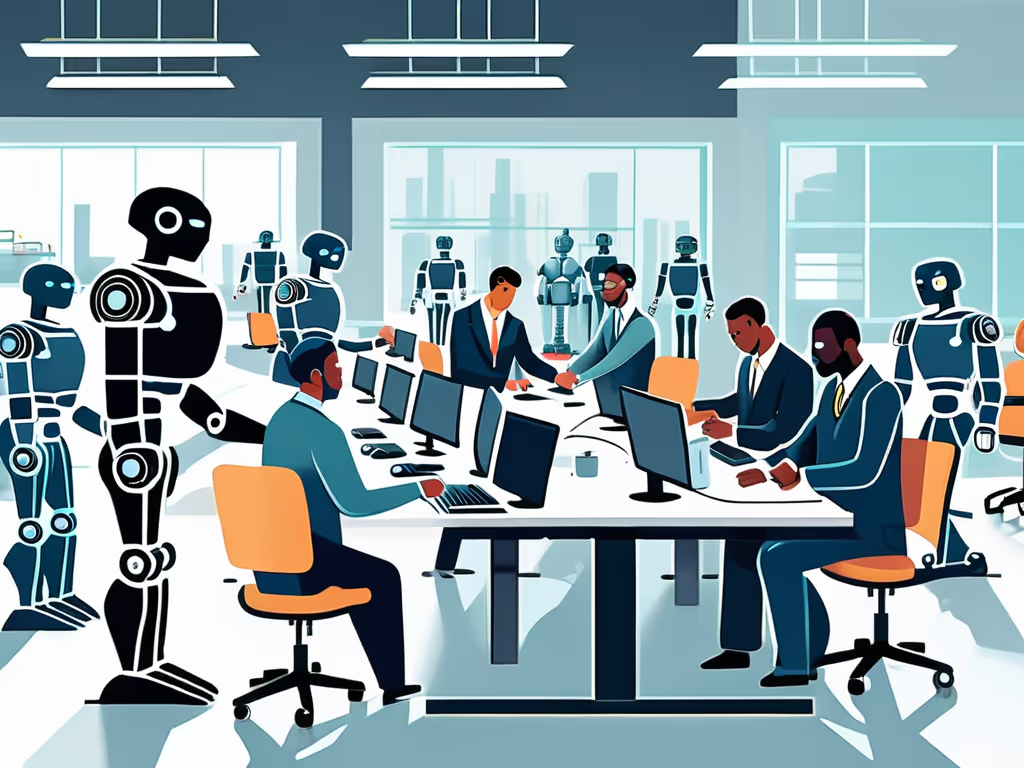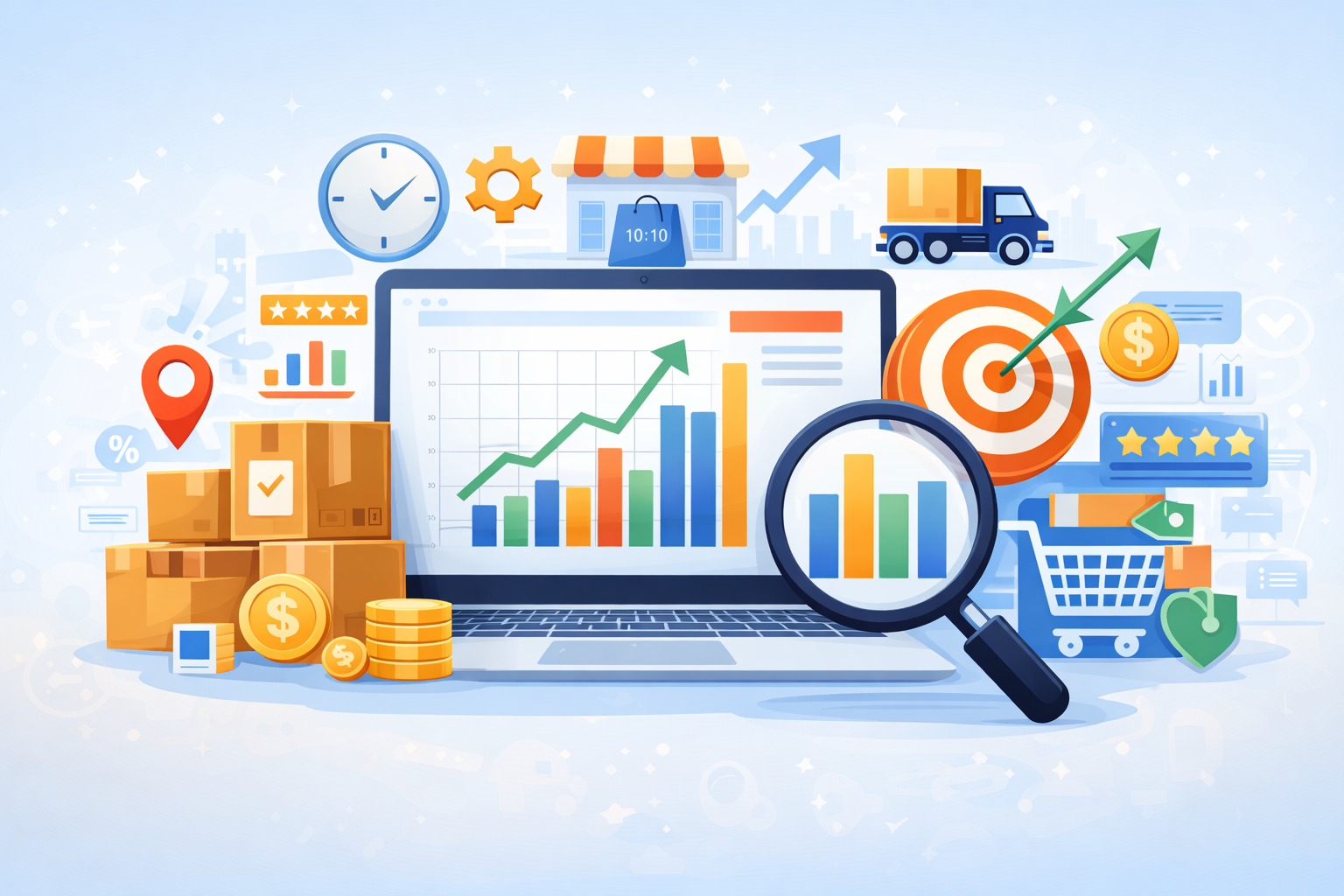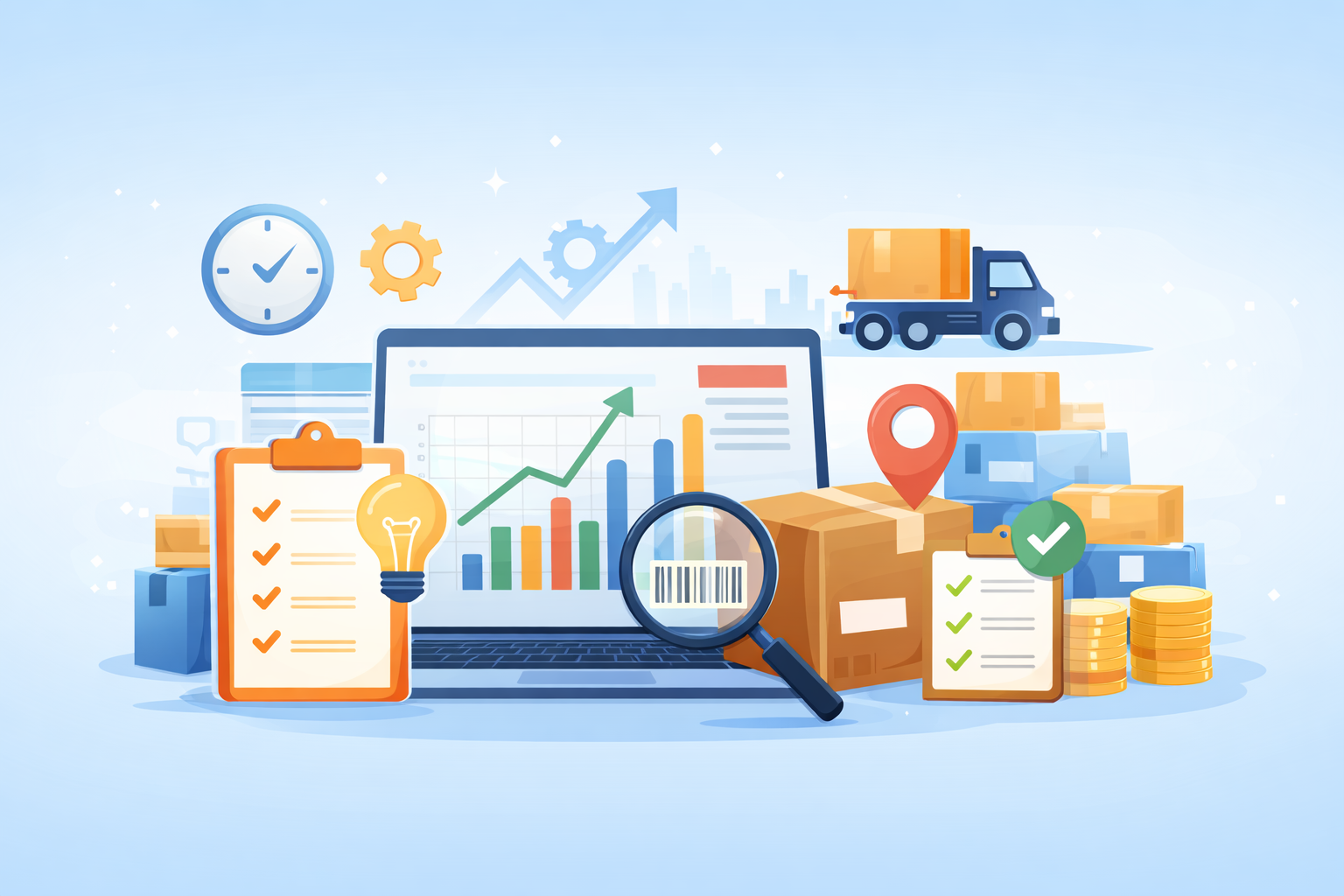Try Zipchat in Action!
Enter your store URL to see how Zipchat would behave.

In recent years, Artificial Intelligence (AI) has emerged as a transformative technology, revolutionizing various industries and sectors. One of the key components of AI is AI Agent Technology, which plays a crucial role in enhancing efficiency and improving decision-making processes. In this ultimate guide, we will explore the fascinating world of AI Agent Technology, understand its definition, evolution, and key components, and delve into the diverse industries where AI agents are making a significant impact.
Understanding AI Agent Technology
Defining AI Agent Technology
AI Agent Technology refers to the utilization of intelligent agents in AI systems to perform specific tasks or make decisions on behalf of humans. An AI agent can be defined as a software entity that possesses the ability to perceive its environment and take actions to achieve desired goals. These agents utilize a wide range of techniques, such as machine learning, natural language processing, and expert systems, to perform their tasks efficiently.
The Evolution of AI Agent Technology
Over the years, AI Agent Technology has undergone significant evolution, fueled by advancements in computing power and the availability of vast amounts of data. Initially, AI agents were simple reflex agents that reacted to stimuli in a predefined manner. However, with the advent of more sophisticated algorithms and approaches, AI agents have transitioned into goal-based and utility-based agents, capable of making intelligent decisions based on context and desired outcomes.
Key Components of AI Agent Technology
AI Agent Technology comprises several essential components that enable intelligent decision-making and autonomous behavior. These components include perception, knowledge representation, decision-making, and action. Perception allows the agent to understand and interpret its environment, while knowledge representation enables the agent to store and retrieve relevant information. Decision-making involves selecting the most appropriate action based on current and past knowledge, while action execution involves carrying out the chosen action in the environment.
One crucial aspect of AI Agent Technology is perception. AI agents rely on various sensors and data sources to perceive and understand their environment. These sensors can range from cameras and microphones to more specialized sensors like infrared or lidar. By collecting and analyzing data from these sensors, AI agents can build a comprehensive understanding of their surroundings, enabling them to make informed decisions.
Another significant component of AI Agent Technology is knowledge representation. AI agents utilize various techniques to store and represent knowledge, allowing them to access and use information efficiently. This knowledge can be in the form of rules, statistical models, or even neural networks. By leveraging this knowledge, AI agents can make intelligent decisions and adapt their behavior based on the information available to them.
Furthermore, decision-making plays a crucial role in AI Agent Technology. AI agents employ sophisticated algorithms and techniques to evaluate different options and select the most appropriate action. These decision-making processes can range from simple rule-based systems to more complex machine learning algorithms that learn from past experiences. By continuously improving their decision-making capabilities, AI agents can become more efficient and effective in achieving their goals.
The Role of AI Agents in Different Industries
AI Agents in Healthcare
The healthcare industry has witnessed tremendous advancements with the integration of AI agents. These agents contribute to diagnosis and treatment planning by analyzing medical records, clinical data, and patient symptoms. AI agents enable healthcare professionals to make more accurate diagnoses, reduce errors, and improve patient outcomes. For example, AI agents can assist in the early detection of diseases like cancer, significantly increasing the chances of successful treatment.

Moreover, AI agents in healthcare are also being utilized in the field of medical research. These agents can analyze vast amounts of medical literature and research papers, identifying patterns and correlations that may not be easily detectable by human researchers alone. By doing so, AI agents help researchers uncover new insights and potential breakthroughs, leading to advancements in medical knowledge and the development of innovative treatments.
AI Agents in E-commerce
In the world of e-commerce, AI agents have revolutionized the way businesses interact with their customers. These agents utilize natural language processing and machine learning techniques to understand customer preferences and provide personalized product recommendations. By analyzing past purchase history and browsing behavior, AI agents can offer tailored suggestions, enhancing customer satisfaction and driving sales. Furthermore, AI agents can also automate various customer service tasks, such as answering inquiries and resolving issues.
Additionally, AI agents in e-commerce are playing a crucial role in fraud detection and prevention. These agents can analyze vast amounts of transactional data in real-time, identifying suspicious patterns and behaviors that may indicate fraudulent activities. By doing so, AI agents help e-commerce platforms protect their customers from financial losses and maintain a secure online environment.
Empowering E-commerce with Zipchat AI Agent
Zipchat AI Agent is an exceptional tool for empowering e-commerce websites. It helps businesses convert more visitors into customers by providing personalized recommendations, answering queries instantly, and offering seamless customer support. This not only improves customer experiences but also boosts sales and overall satisfaction. Experience the benefits of Zipchat AI Agent for your e-commerce business by starting your 7-Day Free Trial today.
AI Agents in Education
The education sector has also embraced AI agents to enhance learning experiences and support personalized education. Intelligent tutoring systems, powered by AI agents, can provide individualized instruction to students based on their learning preferences and progress. These agents can adapt the curriculum and pacing to suit each student's needs, leading to improved retention and academic performance. Additionally, AI agents can assist teachers in assessing student performance and providing timely feedback.
Furthermore, AI agents in education are also being used to develop virtual reality (VR) and augmented reality (AR) applications. These agents can create immersive and interactive learning environments, allowing students to explore complex concepts and scenarios in a more engaging way. By incorporating AI agents into VR and AR technologies, education becomes more accessible and enjoyable for students of all ages.
Types of AI Agents
Simple Reflex Agents
Simple reflex agents are the most basic form of AI agents. They operate based on stimulus-response rules and do not possess memory or the ability to learn. These agents react to immediate stimuli and execute predefined actions, making them suitable for simple and well-defined tasks.

For example, imagine a simple reflex agent deployed in a smart home system. When the agent detects a motion sensor being triggered, it immediately turns on the lights in the corresponding room. This type of agent is efficient for handling straightforward tasks that require immediate responses.
Model-Based Reflex Agents
Model-Based Reflex Agents improve upon the simple reflex agents by incorporating memory and an internal model of their environment. They can consider past actions and outcomes to make more informed decisions. This type of agent is particularly useful in situations with dynamic environments that require adaptive behavior.
Let's consider an autonomous driving system as an example of a model-based reflex agent. This agent not only reacts to immediate stimuli, such as traffic lights or pedestrians, but also takes into account its internal model of the road network. By analyzing past actions and outcomes, the agent can anticipate potential hazards and adjust its behavior accordingly, ensuring a safer and more efficient driving experience.
Goal-Based Agents
Goal-Based Agents possess the ability to set goals and take actions that bring them closer to achieving those goals. These agents can reason and plan to determine the best course of action given a particular objective. Goal-based agents are widely used in applications that involve complex decision-making and long-term planning.
Consider a goal-based agent employed in a supply chain management system. The agent's goal is to minimize costs while ensuring timely delivery of goods. By analyzing various factors, such as transportation routes, inventory levels, and customer demands, the agent can make informed decisions on sourcing, production, and distribution. This enables the system to optimize the supply chain operations and achieve the desired goals efficiently.
Utility-Based Agents
Utility-Based Agents make decisions based on a utility function that evaluates the expected outcome of different actions. These agents are capable of assessing the potential rewards and risks associated with different courses of action, allowing them to make optimal decisions under uncertainty. Utility-based agents find applications in various domains, such as finance, resource allocation, and risk management.
Imagine a utility-based agent employed in a financial portfolio management system. The agent's utility function considers factors such as expected returns, volatility, and risk tolerance. By evaluating the potential outcomes of different investment options, the agent can recommend an optimal portfolio allocation strategy that maximizes the investor's utility. This enables individuals and organizations to make informed investment decisions based on their specific preferences and risk appetite.
Building an AI Agent: A Step-by-Step Process
Identifying the Problem
The first step in building an AI agent is clearly defining the problem it is intended to solve. This involves understanding the requirements, constraints, and desired outcomes. By gaining a deep understanding of the problem, developers can design an AI agent that effectively addresses the underlying challenges.

For example, let's consider a scenario where an AI agent is being built to assist doctors in diagnosing rare diseases. The problem here is the difficulty in identifying these diseases due to their rarity and complex symptoms. By clearly defining this problem, developers can focus on designing an AI agent that can analyze medical data, identify patterns, and provide accurate diagnoses.
Designing the Agent
Once the problem is identified, the next step is designing the AI agent. This involves determining the knowledge representation, decision-making algorithms, and action execution mechanisms. Developers need to select appropriate AI techniques and architectures that align with the problem at hand.
In the case of the AI agent for diagnosing rare diseases, the design process would involve selecting a knowledge representation model that can handle complex medical data, such as ontologies or semantic networks. Decision-making algorithms, such as Bayesian networks or deep learning models, would be chosen to analyze the data and make accurate diagnoses. Additionally, action execution mechanisms would be designed to provide doctors with recommendations for further tests or treatments.
Implementing the Agent
With the design finalized, the AI agent is implemented using programming languages and frameworks suitable for AI development. The implementation phase involves coding the perception, knowledge representation, decision-making, and action components of the agent. Developers ensure that the agent can effectively interact with its environment and carry out the desired tasks.
In the case of the AI agent for diagnosing rare diseases, the implementation process would involve writing code to collect and preprocess medical data from various sources, such as electronic health records and medical literature databases. The agent's knowledge representation model would be implemented to store and organize this data, while the decision-making algorithms would be coded to analyze the data and generate diagnoses. Finally, the action components would be implemented to provide doctors with clear and actionable recommendations based on the agent's findings.
Testing and Refining the Agent
After implementation, the AI agent undergoes rigorous testing to ensure its functionality, accuracy, and reliability. Developers simulate various scenarios and evaluate the agent's performance against predefined criteria and benchmarks. Based on the test results, the agent may undergo refinements and enhancements to optimize its performance and address any identified shortcomings.
In the case of the AI agent for diagnosing rare diseases, extensive testing would be conducted using real-world medical cases and expert opinions. The agent's accuracy in identifying rare diseases would be evaluated, along with its ability to provide relevant and useful recommendations to doctors. Any issues or limitations identified during testing would be addressed through iterative refinements, ensuring that the agent continuously improves its diagnostic capabilities.
As we can see, building an AI agent involves a systematic process of problem identification, design, implementation, testing, and refinement. Each step requires careful consideration and expertise to ensure the agent's effectiveness and reliability. By following this process, developers can create AI agents that have a positive impact on various industries and improve the quality of our lives.
Transform Your E-commerce Experience with Zipchat AI
As you've discovered, AI Agent Technology is reshaping industries by providing smarter, more efficient ways to engage with customers and streamline operations. Zipchat AI embodies this innovation, offering the most powerful AI Chatbot designed specifically for E-commerce. With the ability to proactively engage visitors and boost conversions by an average of 13.4%, Zipchat AI is your partner in elevating customer interactions and sales. Don't miss the opportunity to revolutionize your online store. Start a 7-Day Free Trial today and witness the transformative power of AI in your business.








